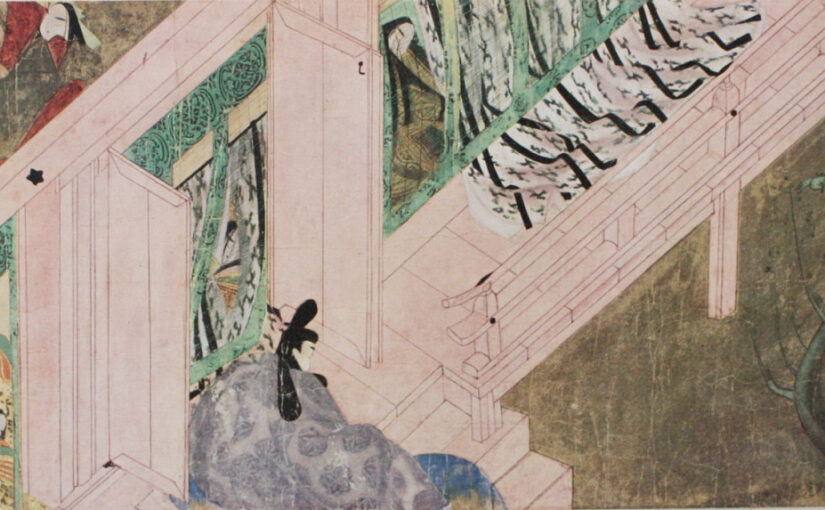So I was taught at school
Photo: Genjimonogatari Emaki by Wikipedia
I first learned about Hyakunin Isshu 百人一首, a classical Japanese anthology of one hundred waka poems by one hundred poets compiled in the 13th century, in junior high school. Learning Hyakunin Isshu meant learning about the sex life of ancient Japanese aristocrats and court ladies.
In ancient Japan,
- virginity was not highly valued by men or women.
- monogamy was not highly valued, either.
- a man visits a woman at her house at night and goes home at dawn.
The sunrise, therefore, was a departing time for lovers. And if a woman makes a poem about sleeping alone at dawn, she must be full of jealousy.
The following 5 poems are examples of such love poems in Hyakunin Isshu.
21/100 素性法師 by Sosei Hoshi
今こむと Ima kom to
言ひしばかりにIishi bakari ni
長月の Naga-tsuki no
有明の月をAriake no tsuki
待ちいでつるかなWo machi izuru kana.
The following is the English translation by William N. Porter (1909).
THE moon that shone the whole night through
This autumn morn I see,
As here I wait thy well-known step,
For thou didst promise me—
‘I’ll surely come to thee.’
30/100 壬生忠岑 by Mibu no Tadamine
有明の Ariake no
つれなく見えしTsurenaku mieshi
別れより Wakare yori
暁ばかりAkatsuki bakari
うきものはなしUki-mono wa nashi.
The following is the English translation by William N. Porter (1909).
I HATE the cold unfriendly moon,
That shines at early morn;
And nothing seems so sad and grey,
When I am left forlorn,
As day’s returning dawn.
52/100 藤原道信朝臣 By Fujiwara no Michinobu Ason
明けぬれば Akenureba
暮るるものとはKururu mono to wa
知りながら Shiri nagara
なほ恨めしきNao urameshiki
朝ぼらけかなAsaborake kana.
The following English translation is by Clay MacCauley (1917)
Like the morning moon,
Cold, unpitying was my love.
Since that parting hour,
Nothing I dislike so much
As the breaking light of day.
53/100 右大将道綱母 by Udaisho Michitsuna no Haha
歎きつつ Nageki-tsutsu
ひとりぬる夜のHitori nuru yo no
明くるまは Akuru ma wa
いかに久しきIkani hisashiki
ものとかは知るMono to kawa shiru.
The following is the English translation by William N. Porter (1909).
ALL through the long and dreary night
I lie awake and moan;
How desolate my chamber feels,
How weary I have grown
Of being left alone!
59/100 赤染衞門 by Akazome Emon
やすらはでYasurawade
寝なましものをNenamashi mono wo
小夜ふけて Sayofukete
かたぶくまでのKatabuku made no
月をみしかなTsuki wo mishi kana.
The following is the English translation by William N. Porter (1909).
WAITING and hoping for thy step,
Sleepless in bed I lie,
All through the night, until the moon,
Leaving her post on high,
Slips sideways down the sky.
